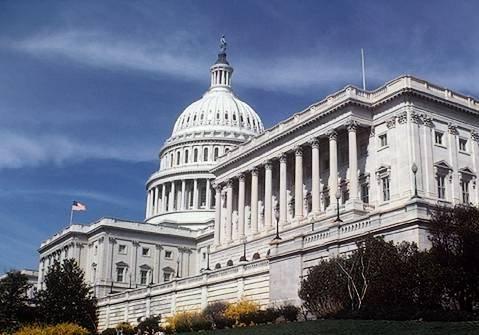Every election season, American voters behold the clamor between Republican and Democratic candidates over what they will or will not do in office. The winners then go to Washington DC as members of Congress to sponsor and vote on legislation in order to make more and more of your choices for you, consolidating decision-making, public policy, and power in the hands of a few. Then the next election season, they use these pieces of legislation to show you just how much they've done for you.
But the role of Congress isn't always just to sponsor and vote on legislation to implement more and more of their own bright ideas to tinker with and micro-manage an entire country. The purpose of Congress is to represent the will and best interests of the citizens in their district or state. Oftentimes this representation must come in the form of voting "No" on unconstitutional legislation, voting "No" on drastic increases in the federal budget with borrowed money, and voting "No" to reflexively increasing the size, scope, and influence of the federal government to make choices that individuals and local communities can better make themselves. Legislation does not always help Americans.
Senator (R-AZ) and 1964 presidential candidate Barry Goldwater articulated this idea perfectly in his seminal 1960 book, The Conscience of a Conservative:
'My aim is not to pass laws, but to repeal them. It is not to inaugurate new programs, but to cancel old ones that do violence to the Constitution, or that have failed their purpose, or that impose on the people an unwarranted financial burden. I will not attempt to discover whether legislation is "needed" before I have first determined whether it is constitutionally permissible. And if I should later be attacked for neglecting my constituents' "interests," I shall reply that I was informed that their main interest is liberty and that in that cause I am doing the very best I can.'
But this is not just a "conservative" idea. It's an independent one. It's the very American idea that decision-making independence for individuals and communities is empowering and allows them to flourish. Its the democratic idea that just an elite few people should not exercise too much power over the many. It's the tolerant and humanitarian idea that one-size-fits-all solutions marginalize and harm minority groups of all kinds within a society. It's the practical and observable idea that when power is consolidated in the hands of a few, it becomes easier for powerful moneyed interests to hold sway over them, diminishing your influence, silencing your voice, and marginalizing your interests.
I amrunning for Congress as an unaffiliated / Independent candidate so that I can smash this paradigm. It is not all about "Yes" and "No" votes that caress and foster special interests to line the pocketbooks of lobbyists, corporations, and politicians' campaign coffers. It is about the intent of the representative to stand up for their constituents' rights. The natural rights of all Americans as guaranteed by the Constitution take precedence over any legislation or action of Congress to implement another bright idea or appease moneyed lobbying efforts.
What will I do as a single person with one voice and one vote representing Colorado’s 3rd Congressional District? Simple: I will vote and advocate against unconstitutional legislation, I will work with state and county representatives to devolve inefficient and unconstitutional actions of the federal government down to the state and local level, and I will be an incessant voice and thorn in the side of those politicians who think they are above the people, or even above the law. Legislators are supposed to be public servants and that's exactly what I will strive to be.
This week's theme at the Independent Voter Network is Partisan Gridlock. How would I solve it as an Independent lawmaker? By fighting to make sure that fewer and fewer decisions are made at the federal level in the first place. Partisan gridlock happens because Congress manages too many aspects of our lives. Americans will never agree on everything, but they don't have to unless their decisions are centralized and made for everybody by one group. Then the need for a single, central consensus bumps up against the impossibility of getting Americans and their elected representatives to agree on everything, creating gridlock.
The answer is to opt out of the paradigm where so many decisions for so many people are made by just a few, and stand up for policies that will empower all people to co-exist while peacefully disagreeing with each other by making their own differing decisions. For me, an important policy area to start this process is monetary policy: abolish the Federal Reserve and allow individuals, local banks, and competing currencies to determine what's economically valuable and profitable.
